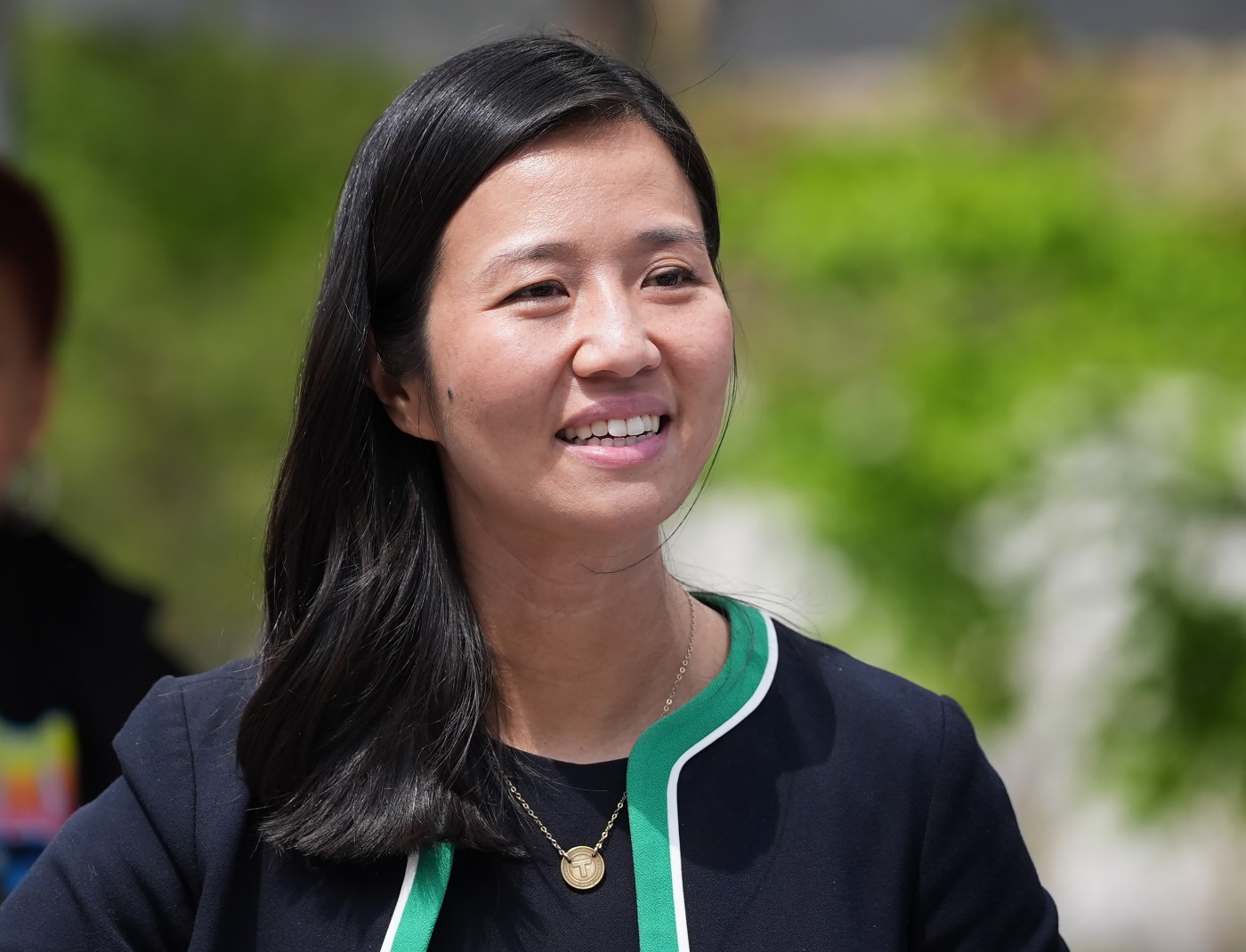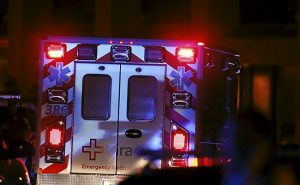
Most Boston voters favor Mayor Wu’s plan to increase commercial tax rates, poll shows
A new poll released by a Boston think tank shows a majority of city voters favor the mayor’s plan to increase commercial tax rates to offset declining property values in that sector, rather than taxing homeowners more or cutting the budget.
Of the 600 registered voters surveyed by John Della Volpe, founder and CEO of SocialSphere, on behalf of the Boston Policy Institute, 49% favored increasing the tax rate on commercial properties to “offset pandemic-related lost tax revenue.”
The mayor’s plan, pending before the City Council, is favored more among younger, college-educated, and white voters, although “Gen X” (ages 44-59) was the only age group that favored another option, cutting spending on city services in the budget, more than raising taxes on commercial properties, poll results show.
While results varied among voters who viewed a cut in budgetary spending or a rise in business tax rates as the best option to solve the city’s projected commercial tax revenue shortfall, those surveyed did agree that raising residential tax rates was not a viable solution in the midst of the city’s housing affordability issues.
“While there is no clear consensus on the method to offset pandemic-related lost tax revenue, voters do not see raising residential property taxes as a viable option,” the report released Monday states.
Only 5% of voters surveyed favored raising taxes on homeowners. The mayor has stated her plan to begin raising taxes on businesses beyond the state limit is meant to offset what would otherwise be a significant increase in residential taxes.
Related Articles
Workers fix $73M Roxbury school that smelled like poop
Watchdog warns Boston Mayor Wu’s plan to hike business taxes could hurt city’s economy
Boston City Council approves petition to slash fire cadet training
Boston City Council approves Gaza cease-fire resolution over objections of Jewish community
Boston City Council looks to crack down on hotel prostitution, drug use
An earlier report from the Boston Policy Institute projected the city could face a more than $1 billion revenue shortfall in five years, driven by declining commercial property values and vacant office space, unless it were to raise taxes on homeowners by 30% or cut the budget by 10%.
Favorable poll results for Mayor Michelle Wu’s proposal to shift more of the city’s tax burden onto businesses for the next four years come on the heels of a report released last week by the Boston Municipal Research Bureau, which cautioned Wu against proceeding with the plan — saying that her administration should instead look to cut spending, dip into its reserve funds and create additional tax options.
The mayor’s plan, which mirrors a temporary tax measure that was implemented by the city two decades ago, has proven to be unpopular among a commercial sector that is struggling with vacant office space, declining property values, and which already takes on a disproportionate share of Boston’s property tax burden.
The new poll also found that a majority of surveyed parents have a negative view of the Boston Public Schools, although they like the teachers, and feel that the district is in need of more funding, despite calls for the city to tighten its budgetary belt.
Further, most voters surveyed have a favorable or neutral view of the way things are going in the city compared to five years ago, with half of the 32% who responded that things were going worse citing the cost of living as the main reason.
Four out five voters rate the quality of life in their city as either “excellent” or “good,” with only 5% saying it’s “poor,” and most plan to stay in Boston long-term, although numbers are much higher for homeowners (72%) vs. renters (54%).
Surveyed voters were most concerned about cost of living, affordable housing, public transportation, public schools, roads and bridges, public safety, employment opportunities, and social justice and inclusion.
Of the policies of most importance to voters, however, the city was only given high marks for the latter three: public safety, jobs and equity.
Voters surveyed were not overly concerned with bus and bike lanes, local taxes and the city’s arts and culture, recreation, dining and nightlife scenes.


